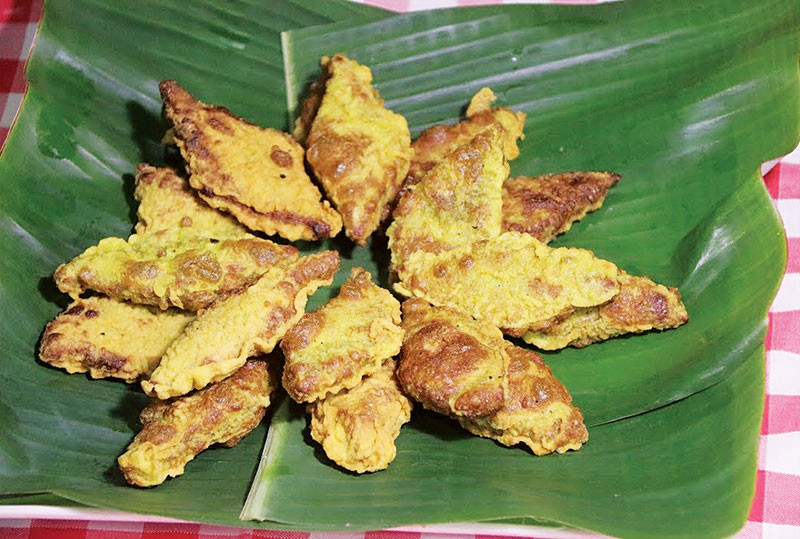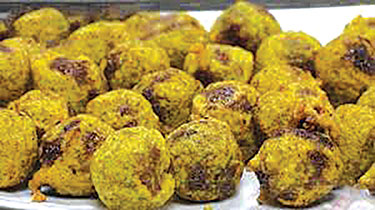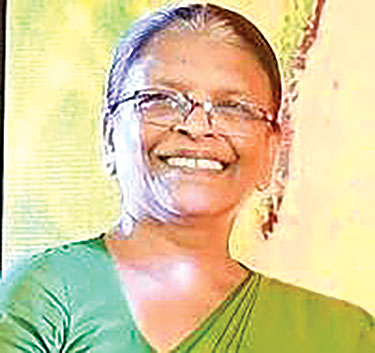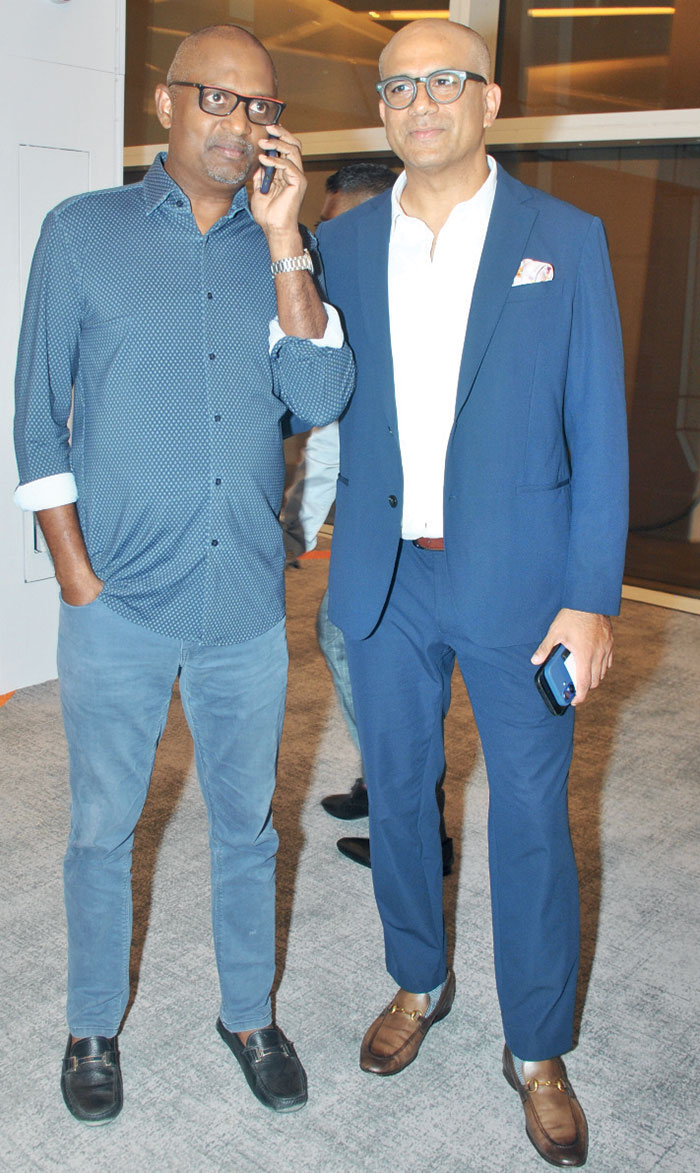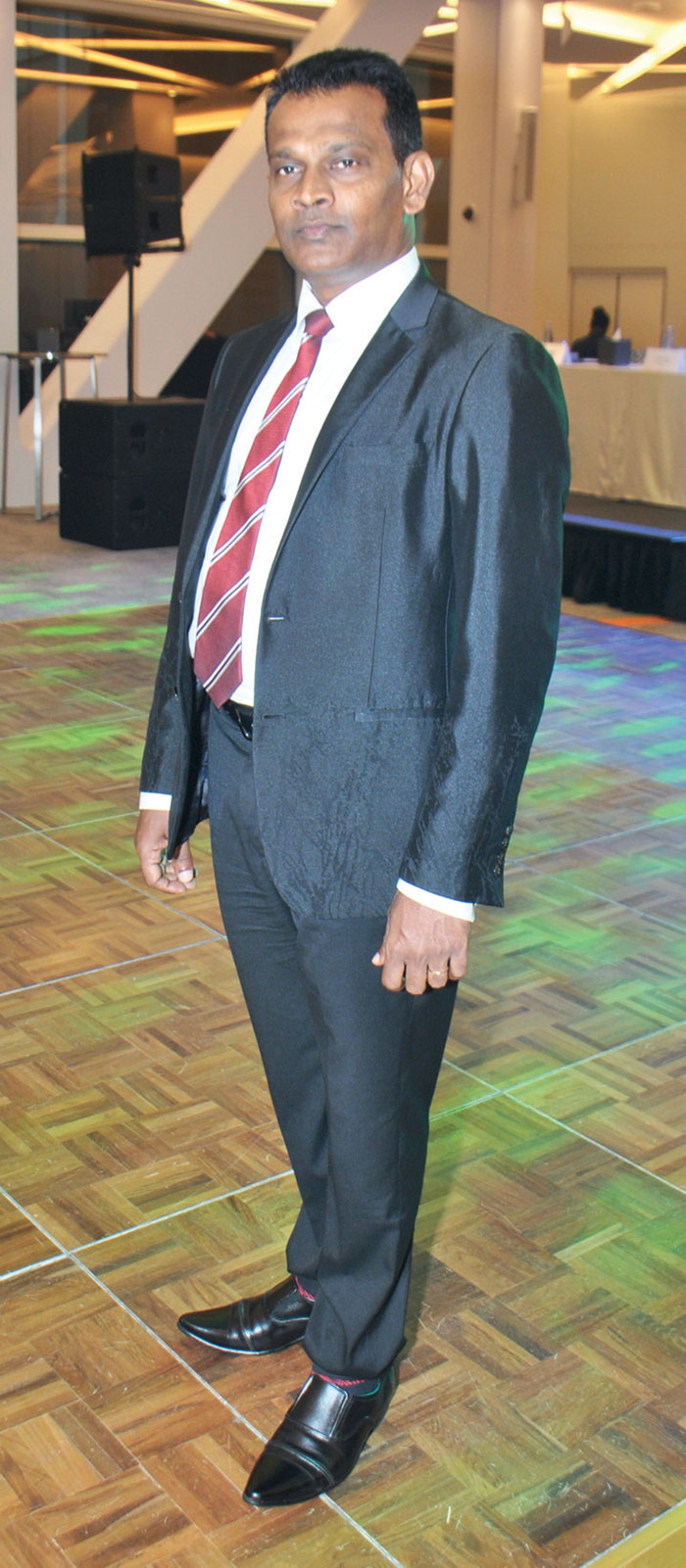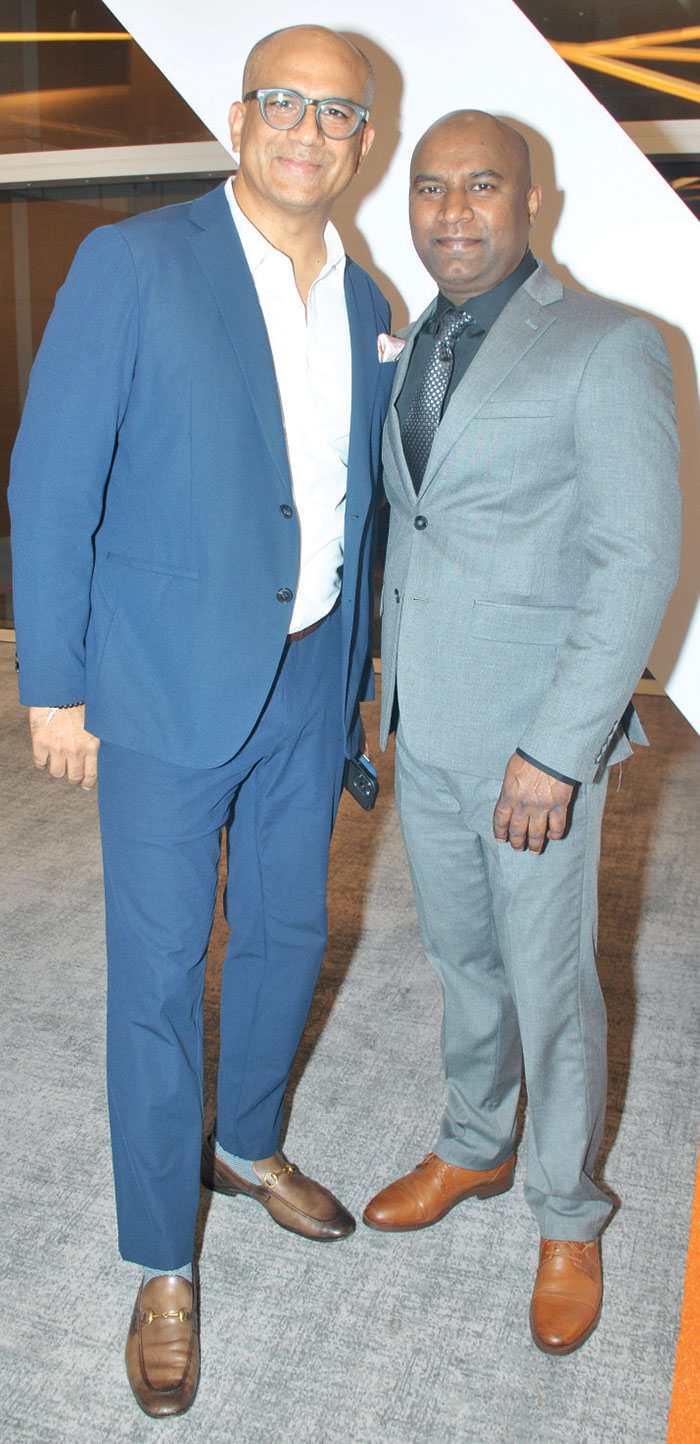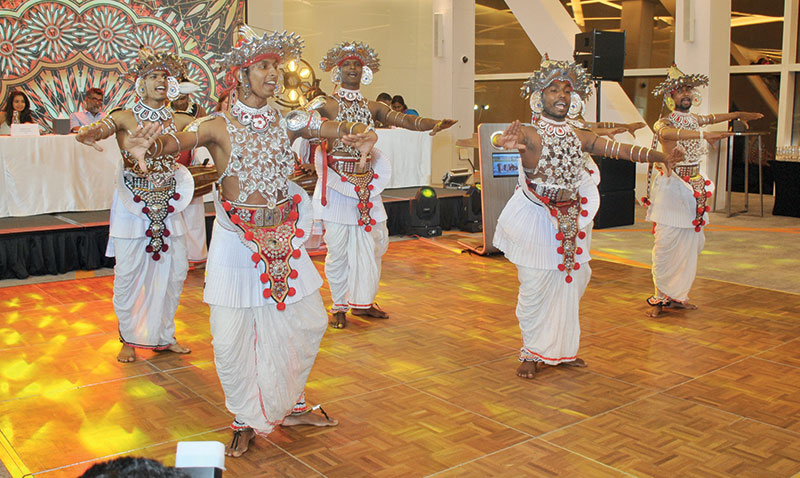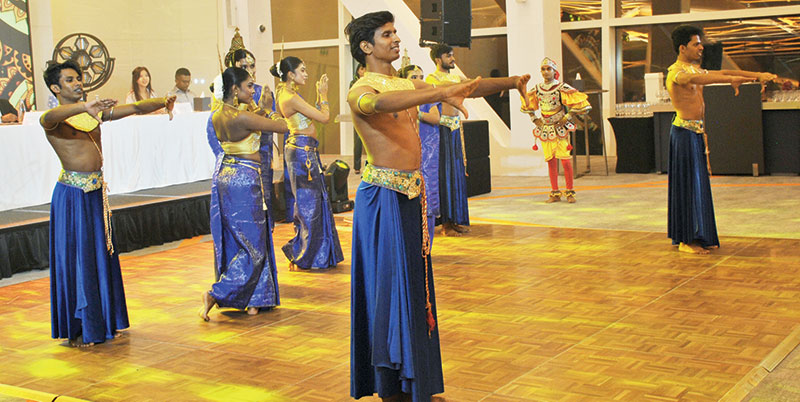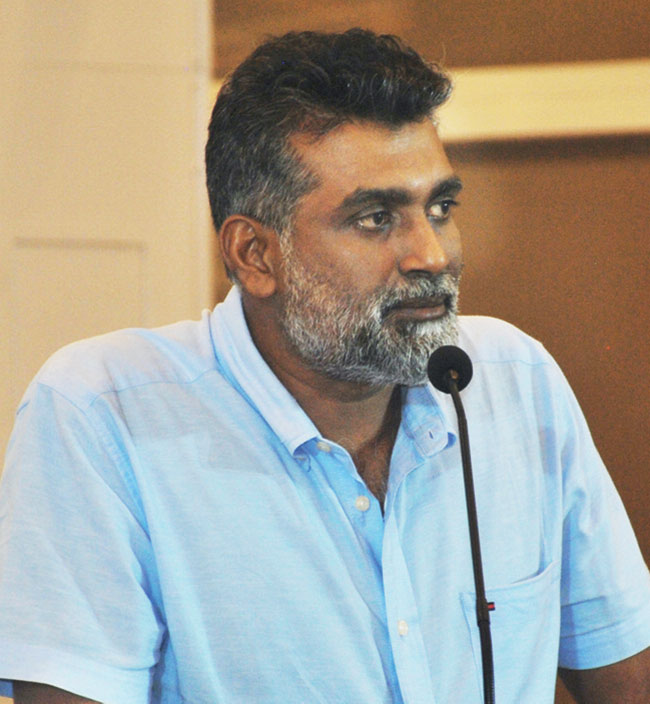Life style
Scientific marine tourism: how ready are we?
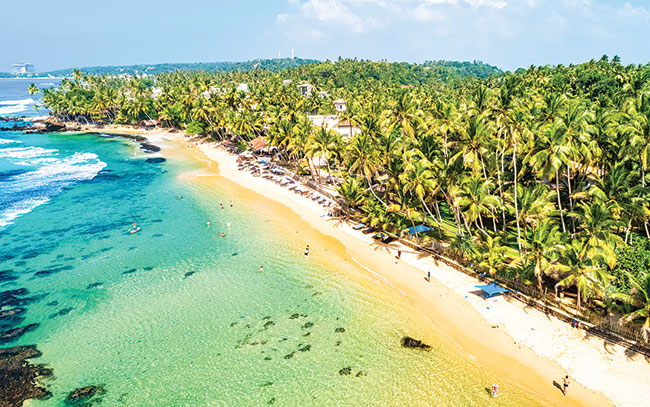
Sri Lanka’s potential for ‘eco and science-based marine tourism’, though immense, has still not been properly tapped. To promote this unconventional tourism product, sustainable environmental practices are fundamental. We spoke to several stakeholders who moot collaborative efforts and community participation in making these best practices a reality.
*The highly diverse Lankan coastline abundant with natural resources is now showing obvious evidence of degradation and destruction.
*The pandemic has made things worse by adding disposable facemasks to the growing plastic menace
*The ‘polluter pays’ principle which is strictly applied in developed parts of the world is grossly neglected here
*Sustainable environmental practices can reflect very positively on the overall branding of the country
BY RANDIMA ATTYGALLE
Face masks piled up on the beach and empty plastic bottles entangled in a coral reef do not fit into the idyllic picture a tourist will envisage of our island. We have been taking our coastline of 1,620 km, abundant with golden dunes, coconut groves and a lot more enabling livelihoods for millions, for granted. The highly diverse Lankan coastline abundant with natural resources is now showing obvious evidence of degradation and destruction.
Our coastal belt with its enormous capacity for tourism is largely threatened by coastal pollution, unethical fishing practices and climate change, says the Former Head of Department of Oceanography, University of Ruhuna and former GM of the Marine Environment Protection Authority (MEPA), Prof. Terney Pradeep Kumara. “The need to have sustainable management of the coastal belt is urgent. While more than 11 million of people live in coastal districts, nearly 62% of local industries are also located in this zone. If we are to attract high end tourists whose revenue matters to the country, we need to act now in managing our coastal resources.”
Sri Lanka’s potential for ‘eco and science-based tourism’, though enormous, has still not been properly understood or tapped, says Prof. Terney. He explains that sustainable environmental practices are fundamental to promote this modern tourism product. “Given our highly diverse ecosystems and our orientation in the Indian Ocean, our marine heritage-both natural and archaeological, is very rich. Corals, for example, can only not determine events of the past such as volcanic eruptions, rising sea levels, mass flooding etc. but they can also predict the same. If we look at pollen, larvae and cysts of different organisms, they can say how ecologically we are connected through genetic matter, animal migration etc. Then we have several shipwrecks which form part of our marine heritage. They are historically important not only to us but to the whole world showing evidence of trade relations and technological evolution and exchange of sea fare. To sustain all of this, coastal management is a must.”
The ocean expert alludes to best practices in South Africa, Australia and the Maldives where tourism goes beyond leisure and makes it a learning experience as well and thereby diversifies the tourism industry. “The reach for scientific eco-tourism is vast and if we market our resources along those lines, going beyond the region, we can attract a sizable segment from Russia, Europe and Canada as well.”
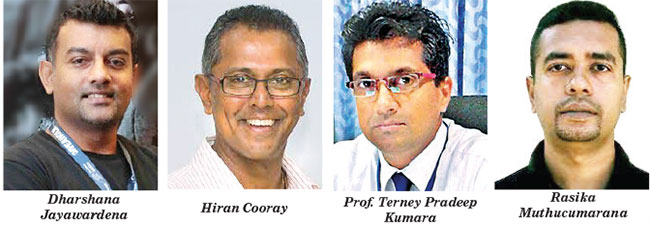
High level multi-sectoral collaborations are proposed by Prof. Terney to address the challenges to sustainable coastal management strategies. Having technical staff equipped with sound scientific knowledge and experience on the boards of SLTDA and SLTPB which are responsible for tourism promotion, equipping hotels with professionals who could empower tourists, enhancing field-based manpower, collating research-based data scattered among various agencies, regulating diving centres (some of which support illegal activities such as spear fishing among tourists) and giving more teeth to the existing environmental and coastal protection laws and increasing the legal literacy among tour guides and local communities are among some of his proposals.
The plastic waste generation here at home is alarming, warns Prof. Terney. “A considerable amount of plastic waste is generated here and a good majority of it ends up in the sea threatening marine life. The pandemic has made things worse by adding disposable facemasks to the growing plastic menace.” The ‘polluter pays’ principle which is strictly applied in developed parts of the world by multi-nationals is grossly neglected in our part of the world, charges the scholar. “Compared to their business scale, the amount these multinationals spend to recover the environment in developing and underdeveloped countries is a pittance,” observes Prof. Terney. The absence of a system of collecting all waste as in the case of Singapore, one of the best Asian models, makes Lankans selfish and also lackluster towards the environment, he goes on to say.
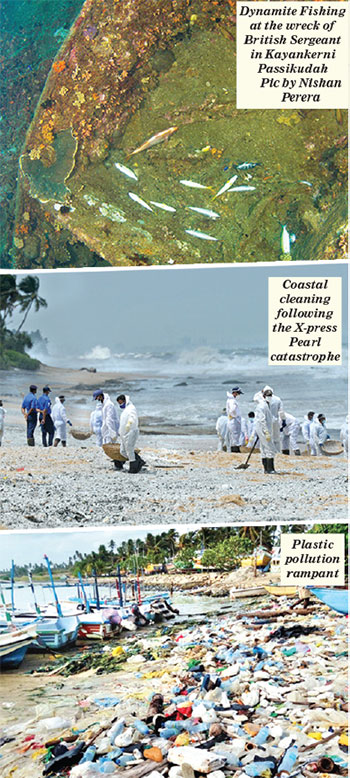 Citing the recent oil spillage catastrophe in our seas of which the environmental damage is yet to be quantified, Prof. Terney calls for urgent amendments to the current laws, some of which have ‘grey areas’. He also moots modern standards and beach certification programmes such as Blue Flag (the world’s most recognized voluntary awards for beaches, marinas and sustainable boating tourism operators) and other leading standards for sustainable marine tourism practices such as Green Fins and Green Key.
Citing the recent oil spillage catastrophe in our seas of which the environmental damage is yet to be quantified, Prof. Terney calls for urgent amendments to the current laws, some of which have ‘grey areas’. He also moots modern standards and beach certification programmes such as Blue Flag (the world’s most recognized voluntary awards for beaches, marinas and sustainable boating tourism operators) and other leading standards for sustainable marine tourism practices such as Green Fins and Green Key.
Most well-seasoned travelers look for countries and organizations which practice sustainability before selecting their destination and therefore the impact of sustainable environmental practices on high-end tourism cannot be undermined, says, Chairman, Jetwing Symphony PLC and the Chair of the Advisory Committee to the Ministry of Tourism, Hiran Cooray. “Sustainable environmental practices can reflect very positively on the overall branding of a country and unethical practices can obviously hurt us,” says the hospitality leader who cites the example of Boracay in Philippines where the destination had to be closed for almost a year to get it cleaned up. “If our beaches and rivers get inundated with plastic waste and other pollutants, no one will get close to them and automatically we will be out of business.”
The well traveled hotelier explains that New Zealand is a fine example of a destination branded as ‘100% pure’. “They walk the talk by setting very high standards of environmental protection and awareness among people.” Education is the key to sustainable practices, remarks Cooray who goes on to note that there are no quick solutions but the only way is to believe in clean cities and villages and work hard collectively to educate the masses.
Protection of tourism assets and involving the community in conservation and revenue sharing are the two most important lessons Sri Lanka can learn from other Asian counterparts such as the Maldives, Malaysia, Indonesia and the Philippines- countries which generate millions of dollars annually from marine tourism, points out techdiver, underwater explorer and photographer Dharshana Jayawardena. Questioning the logic of promoting tourism while it is exploited illegally, Jayawardena charges that in certain areas of the country, usage of illegal fishing nets, dynamite fishing and spear fishing is taking its toll decimating the marine ecosystem. “For instance, the wreck and the corals of the World War II SS British Sergeant are destroyed by dynamite fishing regularly and in Unawatuna dive operators complain that while they are showing marine life to SCUBA divers, a few dive centers break the rules and engage in illegal spearfishing shocking the tourists they are guiding. Both dynamite fishing and spearfishing is illegal in Sri Lanka but still happens rampantly.”
‘Over tourism’, as the explorer explains, can also destroy tourism assets. “In other countries, there is a daily limit to the number of tourists who can visit the national parks, ensuring that the marine eco system has a respite. Pigeon Island National Park of ours which is suffering from overcrowding and pollution can benefit from a model like this.”
In a lot of Asian countries, most of the revenue earned by a tourism asset directly goes back to the community surrounding the asset. People in the area are involved in providing services as well as earning a majority of revenue from the park fee which goes to community development in the area. “This provides a strong incentive for the community towards conservation and protection of the tourism assets as they benefit most from it. It can also be thought of a redirection of tax revenue made from tourism businesses in the area are directly reinvested back to provide better quality of life to people in the area and the tourists, instead of the money disappearing forever in the treasury,” maintains Jayawardena.
Rasika Muthucumarana, Maritime Archaeologist from the Maritime Archaeology Unit of the Central Cultural Fund in Galle says that marine pollution expedites the deterioration of wrecks and artefacts resulting from chemical reactions. “The inland waste flowing through rivers and canals ultimately end up in the ocean at a huge cost. Pollution also distracts marine life from wrecks. Shipwreck diving is a popular form of marine tourism and environmental hazards, largely due to plastic pollution can discourage potential tourists,” says Muthucumarana. The marine pollution resulting in unclean waters and lower visibility could affect divers. “There are also hazards posed by ‘ghost nets’ entangled in wrecks and corals. Marine pollution also places the divers at increased health risks,” notes the maritime archaeologist who calls for higher penalties and fines for polluters.
Life style
Kevum – Befitting a King
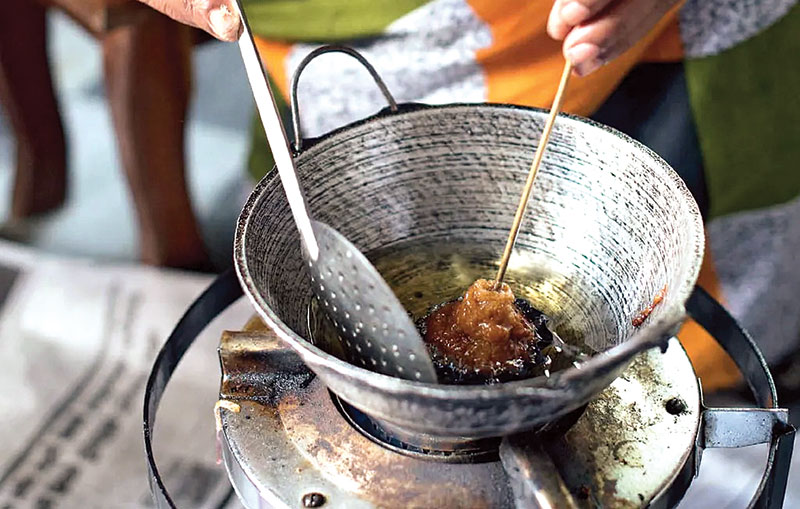
The avurudu table of any Lankan home is complete only when it is laden with kevum. Dating back to ancient times, many types of kevum are chronicled even in our classical texts. The Dutch rulers of the island are said to have relished them, some even asking if they grew on trees… A delicacy which was offered to visiting dignitaries, kevum was revered by our kings even in the battle field not only as an energy-booster but also as a wound disinfectant.
BY RANDIMA ATTYGALLE
The culmination of Avurudu preparations in my childhood with my grandparents was marked by the ritual of Kevum-making. Athamma would ‘book in advance’ the kevum specialist Soida Hami (Soida aachchi to us children), and install a special hearth in her back verendah for the grand moment. I would watch Soida aachchi in wonderment as her thick batter of rice flour and best of kithul treacle shaping into kevums in a hot wok of coconut oil. The long kevum koora in her nimble fingers would achieve the feat of the perfect konde. It was almost a rite of reverence, so much so I was not supposed to talk to her until the first batch of Konda-kevums was completed. Like many old-folk of her vintage, Soida aachchi believed that talking while the first few kevums are done would result in a flawed product.
She would then place each perfect Konda kevuma on a banana leaf for the excess oil to drain. Once the whole exercise was completed, she would place Konda-kevum in large earthen pots and store them in the dum messa or the storage area above the main hearth of the kitchen. She would spare me only one kevuma and the rest had to wait until the auspicious time on avurudu day!
Travellers’ records
Robert Knox an English sailor who was held in captive in the court of the Kandyan King Rajasinghe II and one of the prolific chroniclers of ancient Ceylon in his famous work, An Historical relation of the Island Ceylon documents on the sweet meats of Lankans with a special account of kevum.
‘They have several sorts of sweet-meats. One they call Caown. It is like to a fritter made of Rice-flower and Jaggory. They make them up in little lumps and lay them upon a leaf, and then press them with their thumbs and put them into a frying-pan and fry them in Coker-nut Oyl or Butter. When the Dutch came first to Columba, the King ordered these Caown to be made and sent to them as a royal treat. And they say, the Dutch did so admire them, that they asked if they grew not upon trees, supposing it past the Art of man to make such dainties.’ (Spelling as in the original Knox)
The account of Knox enables rich insights into this wonder of a sweet meat which enthralled many a traveller to the island including dignitaries. The European trader Cosmas who visited Ceylon in 545-550 AD, documents that along with gems, Kevum and Kalu dodol from Ceylon were taken to the Roman court of Emperor Claudius during the sixth century.
- Mun kevum
- Konda kevum
- Athirasa
Classical literature
Kevum dates back to ancient times and our classical texts such as the Ummagga jatakaya, Pujawaliya and Saddharma Ratanawaliya bear evidence to this fact. “Originally known as poopa this sweet meat came to be known as kevum in the Dambadeniya-Kurunegala era. Jathaka atuwa getapadaya mentions 18 kinds of sweet-meats found in the ancient Sri Lanka and among them are several types of kevum such as sendi kevum, mal kevum, athirasa, pena kevum, raa-kevum,” says Prof. Kusumalatha Lankamulla from the Department of Sinhala and Mass Communication at the University of Sri Jayewardenepura.
This scholar with research interest in Culture, Traditional and Modern Literature goes onto note that Mahawamsa in its 32nd chapter refers to two types of kevum in the context of alms offered by King Dutugemunu. The two types- thel kevum and maha de kuvum mentioned, were fried in ghee. “Many of our classical texts mention kevum in multiple festive contexts beyond avurudu. In Ummagga jathakaya, kevum is mentioned as a fitting gift to be taken when visiting parents. Saddharma Ratanawaliya refers to boxes of kevum or kevum pesa.“
An energy booster
Among the popular kevum types found today are Konda kevum, athirasa, mun-kevum, naran kevum and hendi-kevum. Although the ingredients used for each type may slightly differ, rice flour and treacle (now largely replaced with sugar) remain common to all. The much sought after Konda kevum which is relatively a later addition to the range of kevum found here at home is believed to have originated during the Kandyan period says Prof. Lankamulla. “During the Kandyan period, men were prohibited from cutting their hair off and they had to tie it in form of a knot on top of their heads. Konda kevuma is believed to have been inspired by this practice.”
Traditionally, Sinhalese soldiers were given a bag of kevum when going to war. History has it that King Dutugemunu went a step ahead and used kevum to treat wounded soldiers. His army used to prepare kevum months in advance and keep them exposed to air so that the mould can grow on them.
This mould in today’s language had ‘antibiotic properties’ and was used on the wounds of the soldiers to prevent them from festering. “In a bid to undermine the pride of place given to kevum as a super food by the locals, the British coined the famous derogatory adage: ‘Sinhalaya is a fool but is an ace at eating kevum’. (Sinhalaya modaya-kevum kanna yodaya)
Steeped in tradition
Superstitious beliefs surrounding the process of kevum-making are not uncommon and these vary from region to region in the island, says Prof. Lankamulla. Regardless of the region, several common traditions were followed by our ancestors and these still continue to be observed in several parts of the country, she says. “The frying pan with coconut oil to prepare the kevum was kept on fire at an auspicious time and village matriarchs who were highly skilled were mobilized for the occasion. Women also believed that they must refrain from talking when the first kevum is being made. For centuries, the first kevum was considered to be the ‘konduru kevum’, dedicated to the sledge-fly or the konduruwa. The village women would hang the first kevum up for the insects so that the rest would be unspoilt.”
With the passage of time, many Lankans, particularly city-dwellers depend on commercially available avurudu kevili including kevum. Although kevum is synonymous with avurudu, today people get to enjoy it round the year thanks to many sweet meat kiosks found in cities. Although these outlets have best sales during avurudu, they get plenty of orders from Lankans travelling abroad or coming home for vacation at other times of the year as well.
One such die-hard kevum fan is Uthpala Ranatunga from Ottawa, Canada. “My Loku amma (oldest aunt) makes it a point to pack me a parcel of best quality Konda kevum to take with me whenever I’m in Sri Lanka for a vacation.
I deep-freeze them for longer use and eat them sparingly,” says Uthpala to whom kevum is always a strong reminder of home. “Each time I indulge in them I feel nostalgic and miss home.”
Kevum is an integral part of the Lankan culture, finding its way from ancient classical literature to that of the contemporary including children’s literature and arts. The much-loved sweet meat is celebrated in the work of Sybil Wettasinghe – the iconic story teller and illustrator.
Come avurudu, we often hear the intonation of Lionel Ranwala, the eminent musician, vocalist and an authority on Sri Lankan folk music, whose tribute to the enduring legacy of this delicacy is one of the best in our times:
Me avurudu kale -sinaha weyan rale
Thel ihirunu kewum gediya wage…
Fashion
Festive glamour at Nethara

Nethara Collection ,is a world of export quality garments in Diulpitiya, Boralesgamuwa, is infused with an ultra festive spirit this season catering to the women of today. Unbelievable offers and discounts from Nethara for Sinhala anTamil new year. On selection of women’s clothing, ranges from casual options to formal occasion wear,all at friendly prices,to enhance your wardrobe this festive season.
Nethara collection, started small in 2017, but soon it outgrew, today with an ever increasing customer base, branded and non branded clothing this shopping centre has become very popular. Export quality , stylish dresses, crop tops, fancy blouses, trousers and many more to flaunt yourself and enhance your wardrobe.Their extensive collection, maintain low pricing allowing everybody to have a chance to shop till they drop dead. From casual wear to formal wear,they have women to men’s items like tee shirts, shirts for every occasion.
Nethara clothing has long remained a name that has struck a chord with Sri Lankan shoppers. “We believe our success has been based up on the premise that absolute sincerity towards customers and no matter what the economic situation that prevails, we try our level best to keep our prices low and within everybody’s budget, said managing director, Nethara Collection Sampath Kumara.
This April season Nethara collection brings an all new collection of export quality seasonal wear. Celebrate the season with exclusive offers made just for you! Dresses, blouses, casual, formal wear denim, men’s shirts and many more… world of limitless style and joy!
This festive season Nethara unwraps a celebration of warmth, style and sophistication. Immense yourself in a vibrant festive atmosphere as you explore thier collection under one roof 345 Boralasgamuwa With a focus on quality, affordability and customer satisfaction, Nethara export quality boutique invites you to celebrate the Sinhala and Tamil New Year in style.
(Zanita)
Life style
Sri Lanka tourism unveils strategic vision
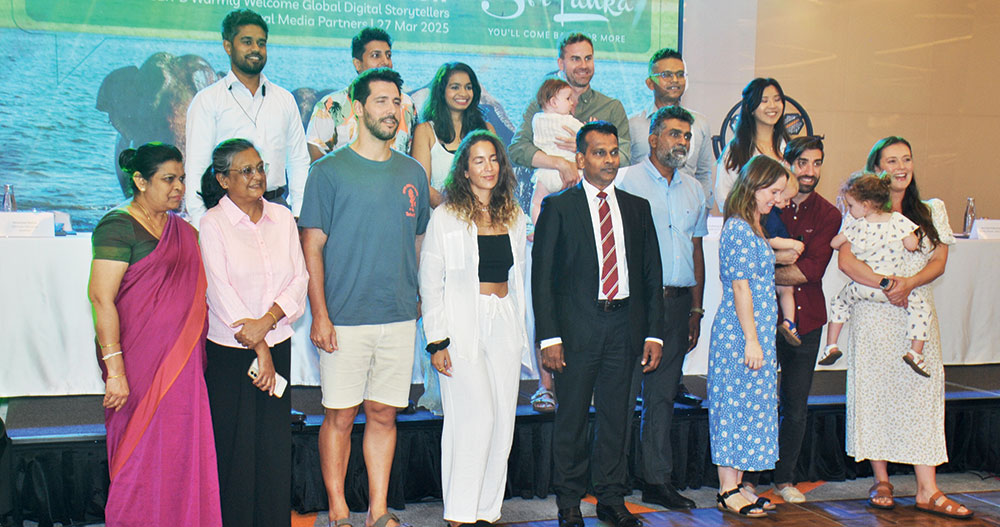
Sri Lanka Tourism Bureau hosted a landmark event at cinnamon Life for an ambitious campaign to spotlight Sri Lanka as a top travel destination. This initiative hosted international influencers and local media to capture the unique charm of Sri Lanka’s destinations. These travel influencers will share thier real time content across platforms like Instragrams Tik Tok and youtube amplifying Sr Lanka as a must visit destination. Many media personal, bloggers and influencers participated in this event which will take them on a tourism travel featuring some of Sri Lanka’s top destination.
Sri Lanka Tourism Promotion Bureau (SLTPB) hosted a landmark event at the Cinnamon Life Hotel, Colombo. The event was led by . Deputy Minister of Tourism, Prof. Ruwan Ranasinghe, with the participation of SLTPB Chairman Buddika Hewawasam, officials, travel influencers and their families, as well as journalists specializing in tourism sector reporting. The gathering set the stage for transformative initiatives aimed at bolstering Sri Lanka’s tourism sector and redefining its global image.
In his opening remarks, Buddika Hewawasam underscored the challenges facing the tourism sector, particularly the seasonal dip in arrivals during the summer months. “The next few years will be the most challenging period for all of us,” Hewawasam stated, emphasizing the need for international collaboration and strategic development. He further highlighted the critical role played by international travel influencers and media professionals in raising awareness of Sri Lanka’s hospitality and inspiring tourists worldwide to visit.
- Dileep Mudadeniya
- Deputy Minister of TourismProfess or Dr Ruwan Ranasinghe
- Guests
The Deputy Minister of Tourism, Prof. Ruwan Ranasinghe, detailed the innovative nature of the campaign and its importance in showcasing Sri Lanka’s rich heritage, natural beauty, and diverse travel experiences to mainstream and emerging tourism markets.
During the event, several prominent travel influencers shared their thoughts about Sri Lanka’s uniqueness as a destination. They highlighted that Sri Lanka is a country where travellers don’t need to worry about finding incredible experiences—nature has already done the hard work. The influencers remarked on Sri Lanka’s unparalleled diversity, noting that it is possible to experience a range of climates within just a few hours by travelling to different parts of the island. From sun-soaked beaches to misty highlands, and from lush forests to cultural treasures, Sri Lanka offers a world of adventures in a compact and accessible setting.
In comparison to destinations like Bali, which some influencers noted as overcrowded, Sri Lanka stands out with stable and balanced tourism activities. The event attendees were thrilled by the country’s warm hospitality, authentic DDirector cuisine with an impressive variety, long history, and rich culture. These qualities make Sri Lanka not only inviting but genuinely unforgettable for visitors.
The travel influencers in attendance expressed strong confidence in their ability to share this powerful message with the world. They were determined to shape international travel trends by showcasing Sri Lanka’s unique appeal, while also helping to attract new types of guests. The influencers represented a diverse range of travel segments, including family travellers, solo female travellers, honeymooners, and adventure seekers. Their efforts were supported by Sri Lanka Tourism officials and journalists representing both local and international media agencies.
The ‘Sri Lanka, A Story for Every Season’ campaign represents SLTPB’s first large-scale effort to boost summer travel through digital storytelling and influencer collaboration.
Featuring a curated destination familiarization tour, the campaign will spotlight wildlife safaris, cultural heritage, spiritual pilgrimage sites, scenic landscapes, and adventure tourism. Influencers will produce high-impact content for platforms like Instagram, YouTube, and Facebook, reaching over 2.2 million travel enthusiasts globally.
Sri Lanka Tourism shared impressive winter peak season results, with international arrivals reaching 665,295 by March 23, 2025—a marked increase compared to the previous year. These figures illustrate the sector’s potential for growth, and the campaign aims to sustain momentum throughout the summer months.
The event was a call to action for stakeholders to unite in elevating Sri Lanka’s global tourism appeal. With plans to generate over LKR 32 million worth of media coverage and connect with diverse travel segments, the campaign underscores Sri Lanka’s commitment to redefining itself as a leading destination for year-round travel.
By Zanita Careem
Pix by Darmasena Welipitiya
-

 Business3 days ago
Business3 days agoColombo Coffee wins coveted management awards
-

 Business5 days ago
Business5 days agoDaraz Sri Lanka ushers in the New Year with 4.4 Avurudu Wasi Pro Max – Sri Lanka’s biggest online Avurudu sale
-

 Features4 days ago
Features4 days agoStarlink in the Global South
-

 Business6 days ago
Business6 days agoStrengthening SDG integration into provincial planning and development process
-

 Business5 days ago
Business5 days agoNew SL Sovereign Bonds win foreign investor confidence
-

 Sports7 days ago
Sports7 days agoTo play or not to play is Richmond’s decision
-

 Features4 days ago
Features4 days agoModi’s Sri Lanka Sojourn
-

 Features22 hours ago
Features22 hours agoSri Lanka’s Foreign Policy amid Geopolitical Transformations: 1990-2024 – Part III



